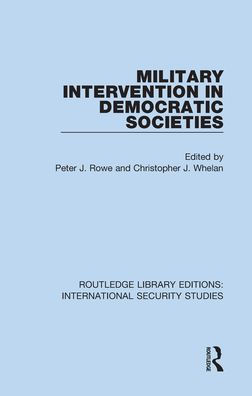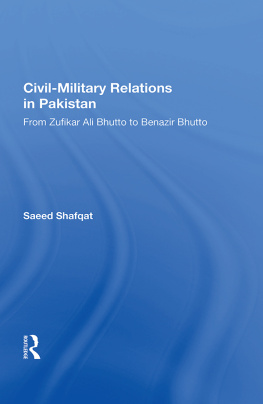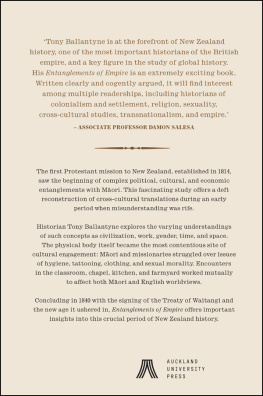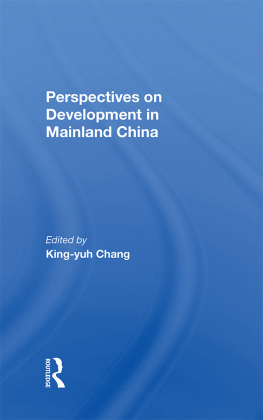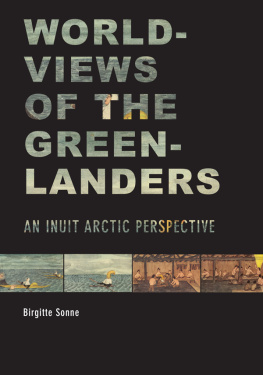CivilMilitary Entanglements
CivilMilitary Entanglements
Anthropological Perspectives
Edited by
Birgitte Refslund Srensen and Eyal Ben-Ari
First published in 2019 by
Berghahn Books
www.berghahnbooks.com
2019 Birgitte Refslund Srensen and Eyal Ben-Ari
All rights reserved. Except for the quotation of short passages
for the purposes of criticism and review, no part of this book
may be reproduced in any form or by any means, electronic or
mechanical, including photocopying, recording, or any information
storage and retrieval system now known or to be invented,
without written permission of the publisher.
Library of Congress Cataloging-in-Publication Data
Names: Srensen, Birgitte Refslund, editor. | Ben-Ari, Eyal, 1953 author.
Title: CivilMilitary Entanglements: Anthropological Perspectives / edited by Birgitte Refslund Srensen and Eyal Ben-Ari.
Description: New York: Berghahn Books, 2019. | Includes bibliographical references and index.
Identifiers: LCCN 2018056945 (print) | LCCN 2018059262 (ebook) | ISBN 9781789201963 (ebook) | ISBN 9781789201956 (hardback: alk. paper)
Subjects: LCSH: Civil-military relationsCase studies. | Civil-military relationsCross-cultural studies.
Classification: LCC JF195 (ebook) | LCC JF195 .R475 2019 (print) | DDC 322.5dc23
LC record available at https://lccn.loc.gov/2018056945
British Library Cataloguing in Publication Data
A catalogue record for this book is available from the British Library
ISBN 978-1-78920-195-6 hardback
ISBN 978-1-78920-196-3 ebook
Acknowledgments
The Entanglement Project received funding from the International Network Programme of the Danish Ministry of Education and Research. The workshop in Copenhagen was supported by the Department of Anthropology, University of Copenhagen, and the workshop in Israel by the Kinneret Center for Society, Security and Peace at Kinneret Academic College and the Open University of Israel through the very welcome support of Prof. Yagil Levy.
Introduction
Rethinking CivilMilitary Connections
From Relations to Entanglements
Birgitte Refslund Srensen and Eyal Ben-Ari
T he global security landscape has changed dramatically over the past few decades, altering how military forces are recruited, trained, and deployed globally. As a result, interfaces between armed forces and civilians have been shaped in numerous new ways. Just think of the wars against terrorism waged by coalition forces typically headed by a few large military powers but engaging other nations with no, or limited, recent war experience. Think of the increasing deployment of military personnel and technologies to provide homeland security, and the growing use of troops for military operations other than war (MOOTW), including tasks such as border control and provision of security at major public events, as well aiding in humanitarian crises after devastating disasters. Think of the crisis simulations, operational exercises, and live demonstrations of military capacity that take place in public spaces with civilians as audience. Think also of the trend away from large conscripted armies toward smaller voluntary forces, and the concurrent growth of public relations departments within the armed forces (Ben-Ari this volume). Think of the global recirculation and use of militarized human capital, security equipment, and expertise (Grassianni this volume), or of the more subtle presence of things military in the commercialized products of the entertainment, technology, and fashion industries or indeed in the landscape. And think of the large number of civilians employed at army bases or who assist veterans, soldiers, and families in need, not to mention military reserves who continuously traverse civilianmilitary boundaries. Indeed, circumstances under which relations between civilians and militaries are established are many and diverse.
In this volume, we argue that a plethora of critical civilmilitary encounters demand anthropological attention and necessitate reconceptualizing the field of civilmilitary relations, which continues to be firmly anchored in the classical debates within political sociology and political science. The basic dilemma that underlies theorizing within these disciplines has centered on the militarys potential threat of using the organized means of violence at its disposal to take over political, social, and economic institutions. Hence, previous theorizing has primarily focused on issues concerning appropriate and effective control mechanisms ensuring that military force is used in the interest of society and not against it. This perspective, however, pays little heed to how ordinary civilians encounter and experience military institutions during their everyday lives, nor how civilian life influences the military. We find this line of inquiry critical because it can illuminate how military and civilian domains are tied together, constituting complex entanglements destabilizing the classic civilmilitary binary and manifesting themselves in unexpected ways. Accordingly, our volume explores the particular perspectives that ethnography and anthropology can contribute to documentations and conceptualizations of, and critical debates about, current civilmilitary relations. Anthropology is methodologically well suited to capture ongoing transformations and manifestations of civilmilitary relations from unique empirical positions that go beyond and add to the restricted, nationally framed institutional gaze. Moreover, anthropology can develop innovative theoretical vocabularies enhancing our understanding of the reach and depth of these entanglements.
In what follows, we briefly position the anthropological study of civilmilitary relations in its wider scholarly background and elaborate on our analytical framework. First, we outline the fields formative sociological legacy and then proceed to discuss some anthropological research trajectories that have clear relevance for the study of civilmilitary relations but which have only partly or indirectly been conceptualized in those terms. The body of sociological and anthropological literature discussed here is not exhaustive but suggestive of how the scholarly field of civilmilitary relations has developed. We end by charting out an agenda for an anthropology of contemporary civilmilitary entanglements building on the limitations and gaps that the ethnographic cases make visible in the existing literature.
The Sociological Legacy
Generally speaking, scholarly studies of the relations between the armed forces and societies are characterized by a broad development that has taken place in political sociology and political science (Lomsky-Feder and Ben-Ari 2000). This movement should be pictured as a number of successive, and cumulative, intellectual waveseach wave characterized by a central theoretical model. All however, proceed from the realization that the central corethe starting point for any analysisis that the uniqueness of the military (along with the police) lies in the organization of legitimate (if at times contested) state violence (Boene 1990).







